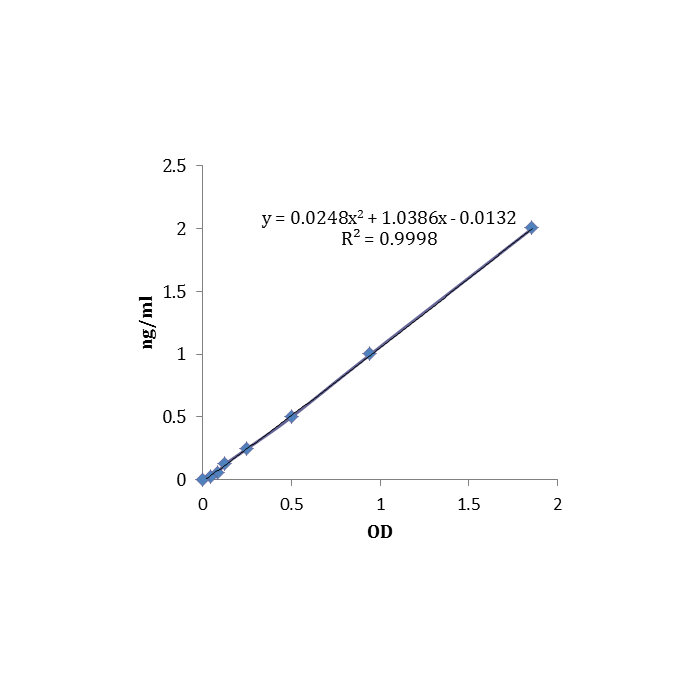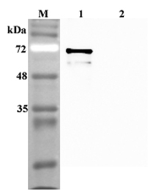Cookie Policy: This site uses cookies to improve your experience. You can find out more about our use of cookies in our Privacy Policy. By continuing to browse this site you agree to our use of cookies.
AdipoGen Life Sciences
Sirtuin 1 (human) (IntraCellular) ELISA Kit
As low as
CHF 0.00
In stock
Only %1 left
AG-45A-0029YEK-KI0196 wellsINQ

Figure 1: Standard curve
| Product Details | |
|---|---|
| Synonyms | Sirt01; SIR02 like Protein 01 |
| Product Type | Kit |
| Properties | |
| Application Set | Quantitative ELISA |
| Specificity | Detects human sirtuin1. Does not cross-react with human sirtuin2, human sirtuin5, human sirtuin5 (intact form) or human sirtuin6. |
| Crossreactivity | Human |
| Quantity | 1 x 96 wells |
| Sensitivity | 30pg/ml |
| Range | 0.032 to 2ng/ml |
| Sample Type | Cell Lysate |
| Assay Type | Sandwich |
| Detection Type | Colorimetric |
| Shipping and Handling | |
| Shipping | BLUE ICE |
| Short Term Storage | +4°C |
| Long Term Storage | +4°C |
| Handling Advice |
After standard reconstitution, prepare aliquots and store at -20°C. Avoid freeze/thaw cycles. Plate and reagents should reach room temperature before use. |
| Use/Stability | 12 months after the day of manufacturing. See expiry date on ELISA Kit box. |
| Documents | |
| Manual |
 Download PDF Download PDF |
| MSDS |
 Download PDF Download PDF |
| Product Specification Sheet | |
| Datasheet |
 Download PDF Download PDF |
Description
Sirtuins (Silent information regulators; SIRTs) deacetylate and/or ADP-ribosylate lysine residues of target proteins in an NAD+-dependent manner. Sirtuins are critical regulators of many cellular processes, including insulin secretion, the cell cycle and apoptosis. Sirtuins, in particular SIRT1, emerged as critical regulators of longevity and aging in several model organisms. Furthermore, a variety of age-associated diseases such as type 2 diabetes, obesity, osteoporosis, and Alzheimer’s disease are associated with sirtuins. SIRT1 has been suggested as potential biomarker for tumorigenesis.
Product References
- Fisetin and luteolin protect human retinal pigment epithelial cells from oxidative stress-induced cell death and regulate inflammation: M. Hytti, et al.; Sci. Rep. 5, 17645 (2015)
- Effects of nasal CPAP on exhaled SIRT1 and tumor necrosis factor-α in patients with obstructive sleep apnea: C.C. Lin, et al.; Respir. Physiol. Neurobiol. 228, 39 (2016)






